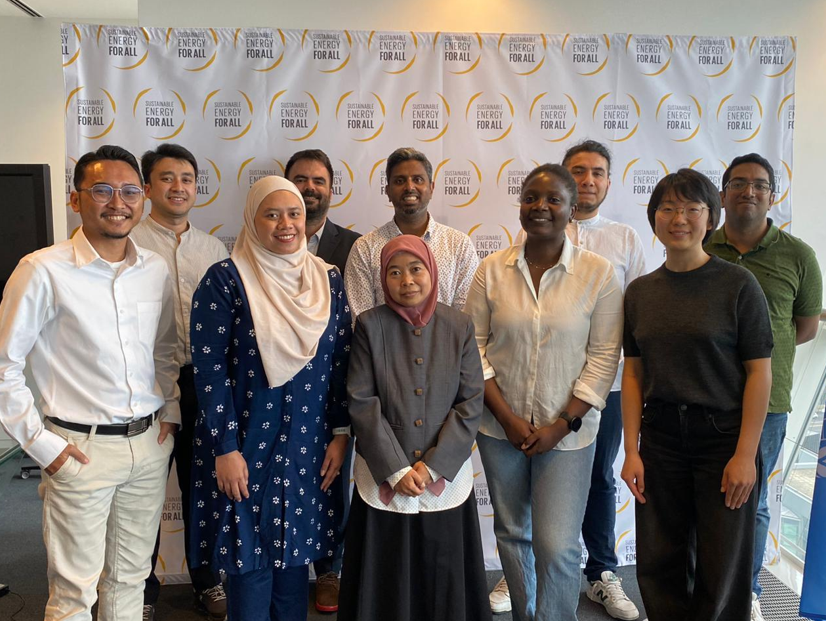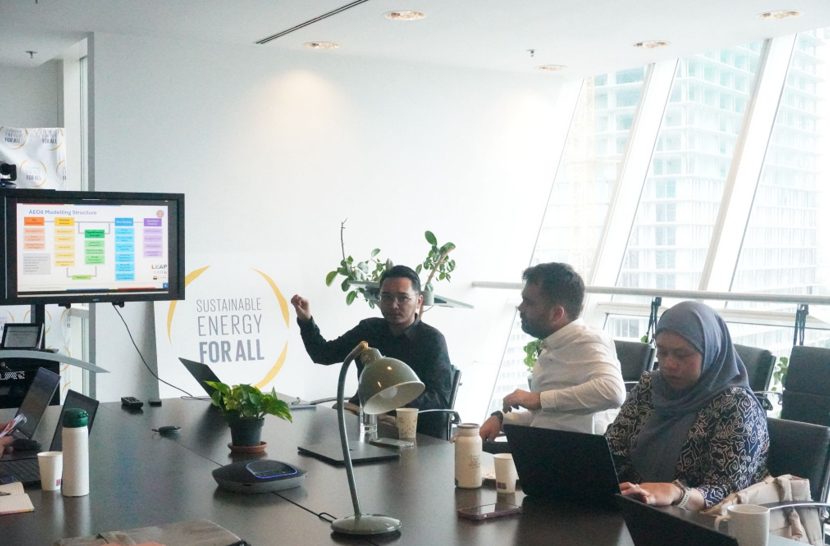Menu

Photo 1. Group photo of the SEforALL Workshop.
From 28 – 30 May 2025, ASEAN Centre for Energy (ACE) representatives participated in a technical workshop organized by Sustainable Energy for All (SEforALL) in Vienna, Austria. The workshop facilitated a meaningful exchange between ACE’s ASEAN Energy Outlook (AEO8) and SEforALL Energy Model (SEM). The focus was on regional energy systems planning using modelling tools in Southeast Asia. The discussions were structured around three key areas: methodologies and modelling frameworks, demand-side modelling, and supply-side modelling.
Muhammad Rizki Kresnawan, Senior Energy Modeller of Energy Modelling and Policy Planning (MPP) Department, ACE, began by presenting the modelling approach used in the AEO8, outlining its key methodologies and scenario framework. Following this, Alvin Jose, Head of Energy Transition Planning & Energy Efficiency, SEforALL, presented how SEM could complement efforts in developing the ASEAN Energy Transition and Investment Roadmap (ETIR), particularly by contributing to scenario development, data collection, and validation processes. SEforALL provided an overview of the SEM architecture and highlighted its application in country level planning, laying the foundation for methodological exchange between the two institutions.
For demand-side modelling, the exchange began with a discussion on top-down approaches to demand projection, particularly the use of Computable General Equilibrium (CGE) models and econometric methods. It continued by discussing bottom-up modelling approaches, focusing on how different sectors are modelled based on activity types, level of detail, and the treatment of technology interventions. In the industrial sector, the focus was on hard-to-abate industries such as iron, steel, and cement production, as well as energy-intensive sectors like data centers and other manufacturing industries.
In the buildings sector, both residential and commercial building energy use were examined, with particular attention to appliances penetration. For the transport sector, discussions centered on defining energy services and demand at activity level, including mode shifting, fuel types, and relevant technologies. In the agriculture sector, modelling addressed energy needs related to food crop production, farming activities, and irrigation systems.

Photo 2. Muhammad Rizki Kresnawan, Senior Energy Modeller of MPP Department at ACE, presented on the ASEAN Energy Outlook Energy Modelling.
On the supply side, the workshop began with an overview of power generation technologies and energy storage solutions. The session addresses the importance of structuring time slices and capacity factors to better capture the variability of Variable Renewable Energy (VRE) and evaluates the adequacy of storage and flexibility options across different time horizons. This was followed by a discussion on hydrogen technologies, focusing on their potential role in decarbonising hard-to-abate sectors and serving as long-term energy storage. The session also explored cross-border interconnection opportunities, highlighting their potential to enhance regional energy security and system flexibility.
The discussion continues on modelling tools that support energy access and planning using geospatial approaches. For energy access, the OnSSET model was presented as an optimisation model to identify least-cost supply option for universal electrification, based on different geospatial characteristics and socio and techno economic data. For the clean cooking transition, the OnStove model was introduced to evaluate the costs and benefits of various clean cooking technologies across different geographic and demographic contexts.
The workshop concluded with a commitment to developing a joint work plan and establish mechanisms for knowledge sharing as a strategic way forward to enhance regional collaboration and build the capacity of ASEAN Member States (AMS) in energy transition planning. Plans for follow-up workshops and continued technical exchange were also outlined.
Through this engagement, ACE strengthened its collaboration with SEforALL’s modelling experts and refined its methodologies, better supporting AMS in the development of robust, data-driven energy policies.
